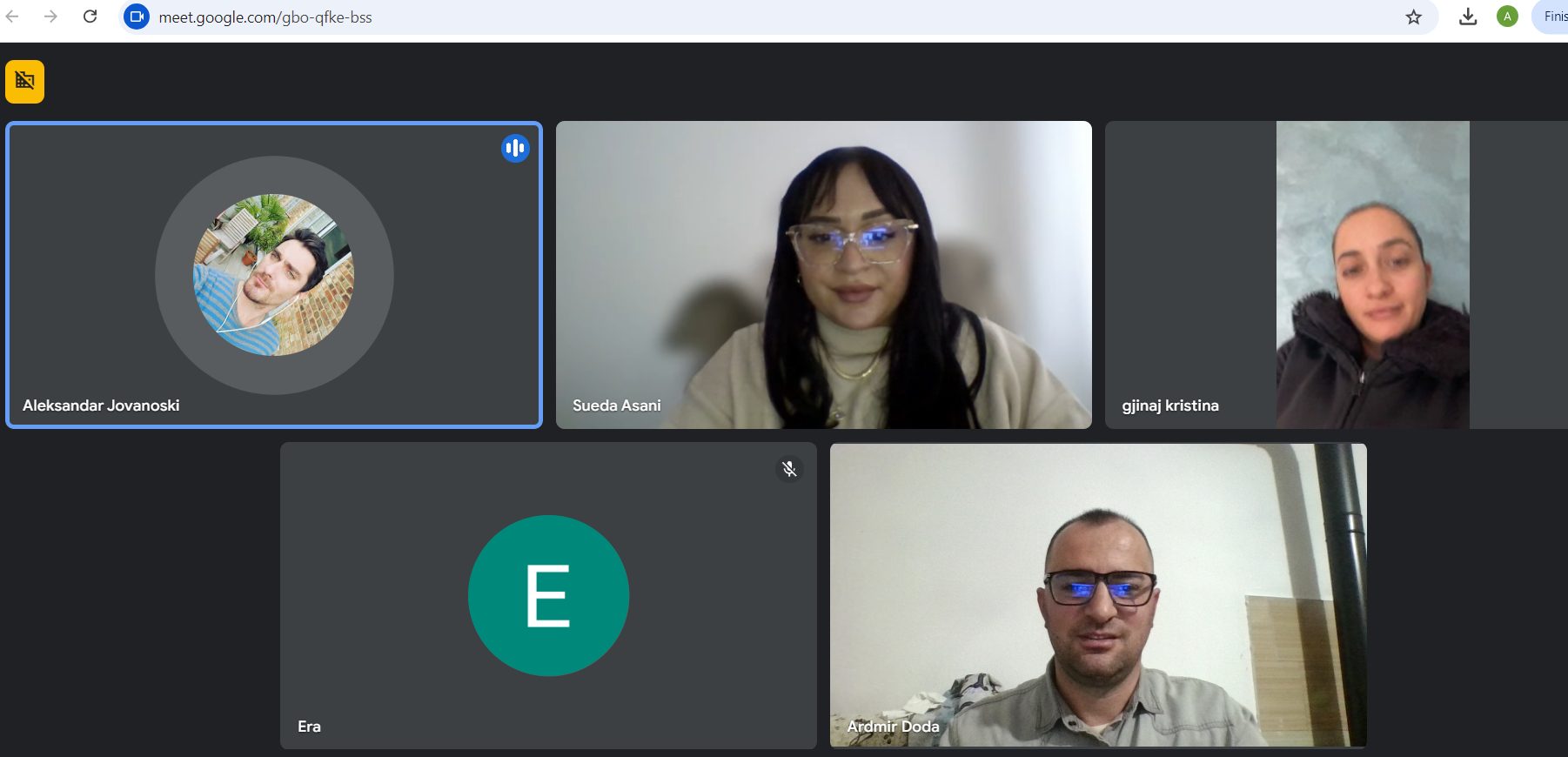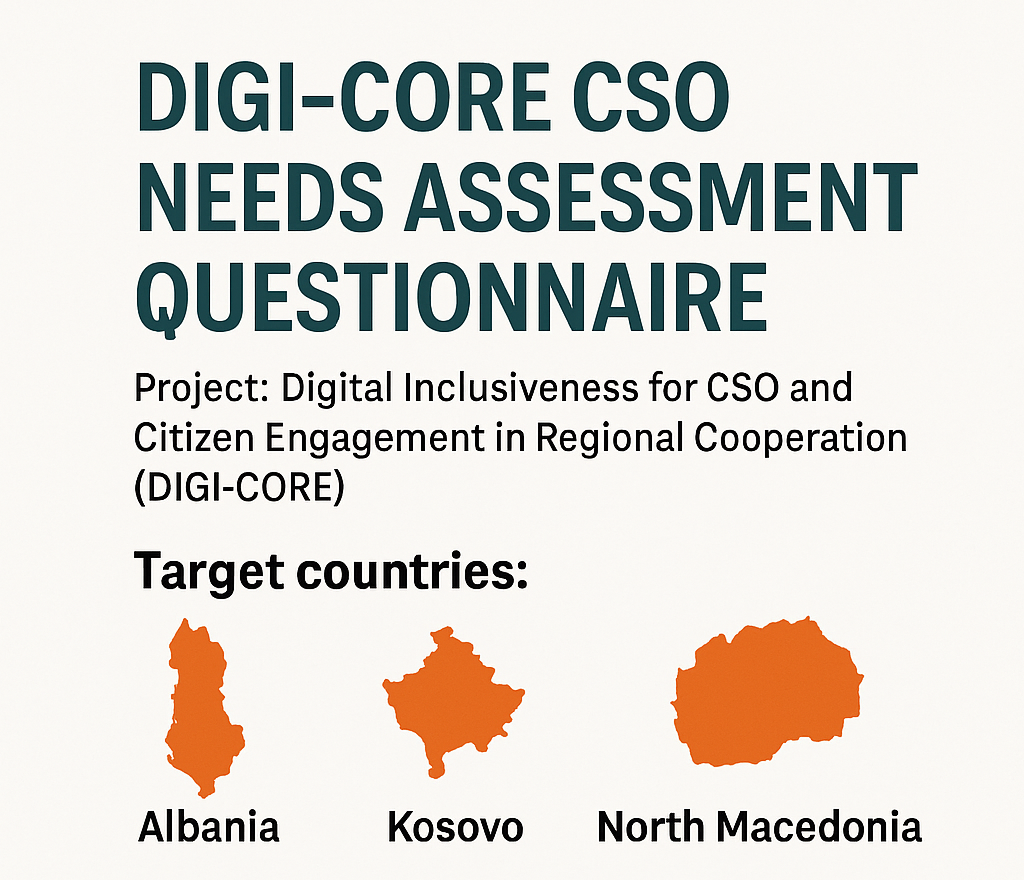
Consortium Meeting to Empower the Communities Through Digital Inclusion
The digital revolution has transformed societies worldwide, yet marginalized communities often remain excluded from the benefits of digitalization. The project “Digital Inclusion for CSOs and Citizen Engagement in Regional Cooperation (DIGI-CORE)” aims to bridge this gap by equipping young students with the necessary skills to support vulnerable populations. This initiative is currently advancing into its fourth activity, which consists of ten training sessions designed to prepare youth volunteers who will assist marginalized communities, including illiterate rural women, digitally illiterate individuals, and the elderly in Albania and Kosovo.
On December 19, 2024, DIGI-CORE partners, QSNNN, Edutask, and Blink, convened to refine the draft of a comprehensive training curriculum. This curriculum focuses on essential e-governance applications and digital tools relevant to Albania, Kosovo, and North Macedonia. Once approved by the donor, these training sessions will commence across the three countries, marking the launch of the “Youth Training Program.”
The importance of digital inclusion cannot be overstated. Access to digital services is no longer a luxury but a necessity, influencing various aspects of life, including education, healthcare, employment, and civic engagement. The DIGI-CORE project recognizes that digital literacy is fundamental to empowering individuals and strengthening community resilience. By training young students as digital mentors, the project fosters intergenerational knowledge transfer, ensuring that those who have been left behind in the digital era can access and navigate essential online services.
As the training sessions begin, DIGI-CORE will create a ripple effect by enabling young volunteers to become agents of change in their communities. Their efforts will not only improve the digital skills of marginalized groups but also promote social cohesion and economic empowerment. The success of this initiative could serve as a model for other countries seeking to bridge the digital divide and ensure that no one is left behind in the rapidly evolving digital landscape.






